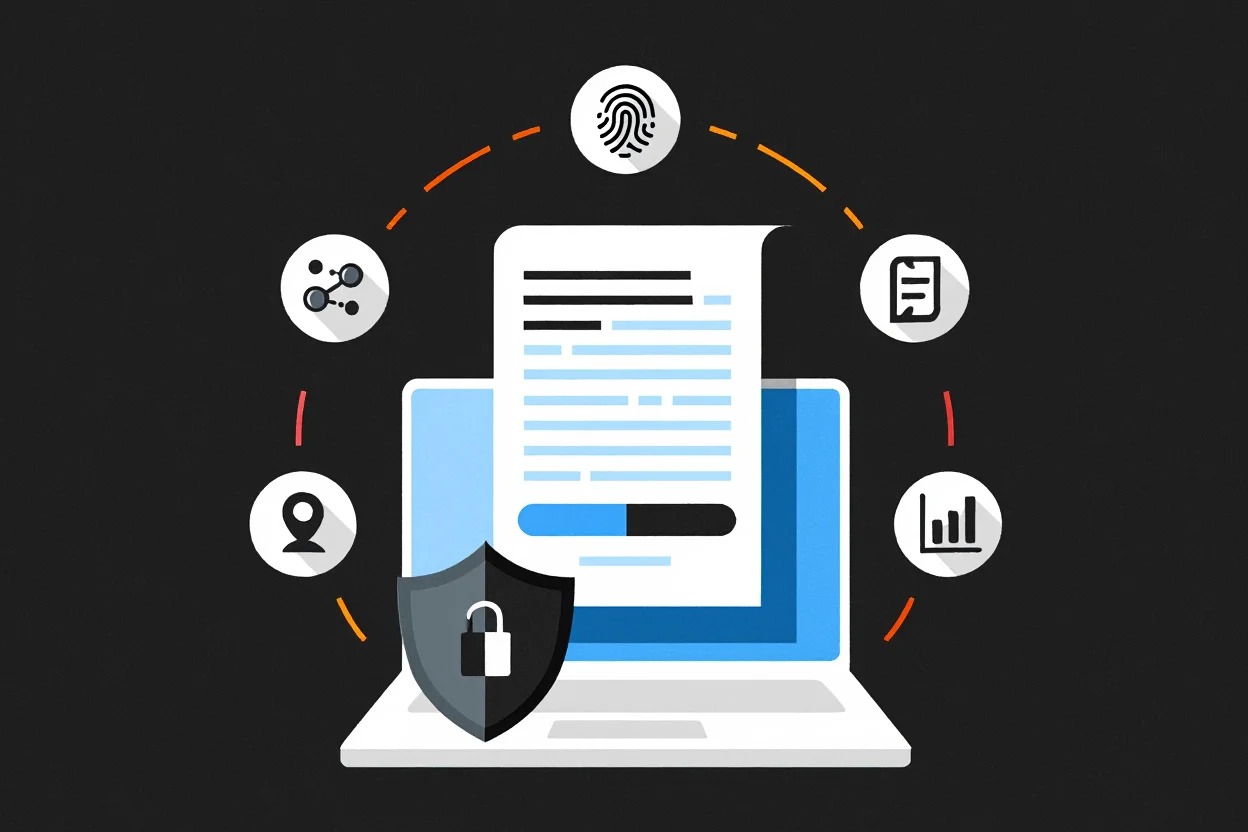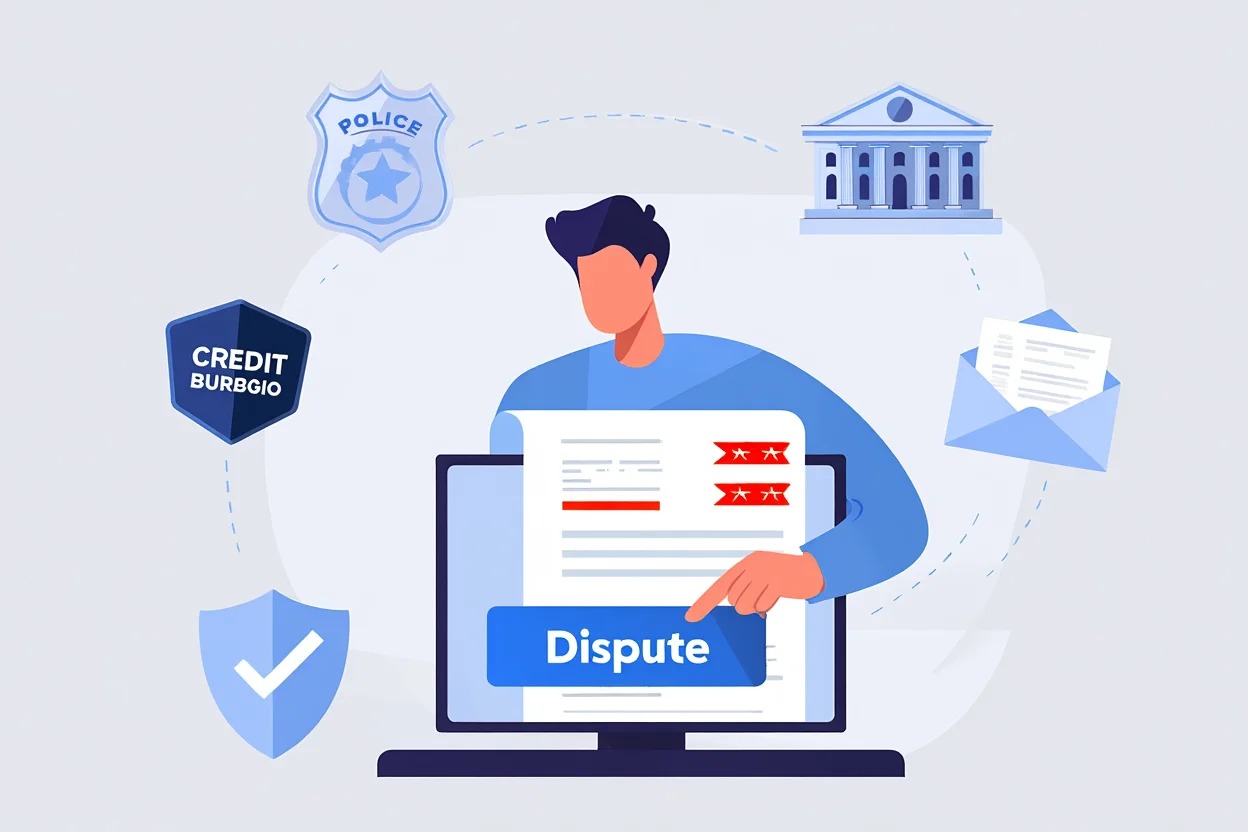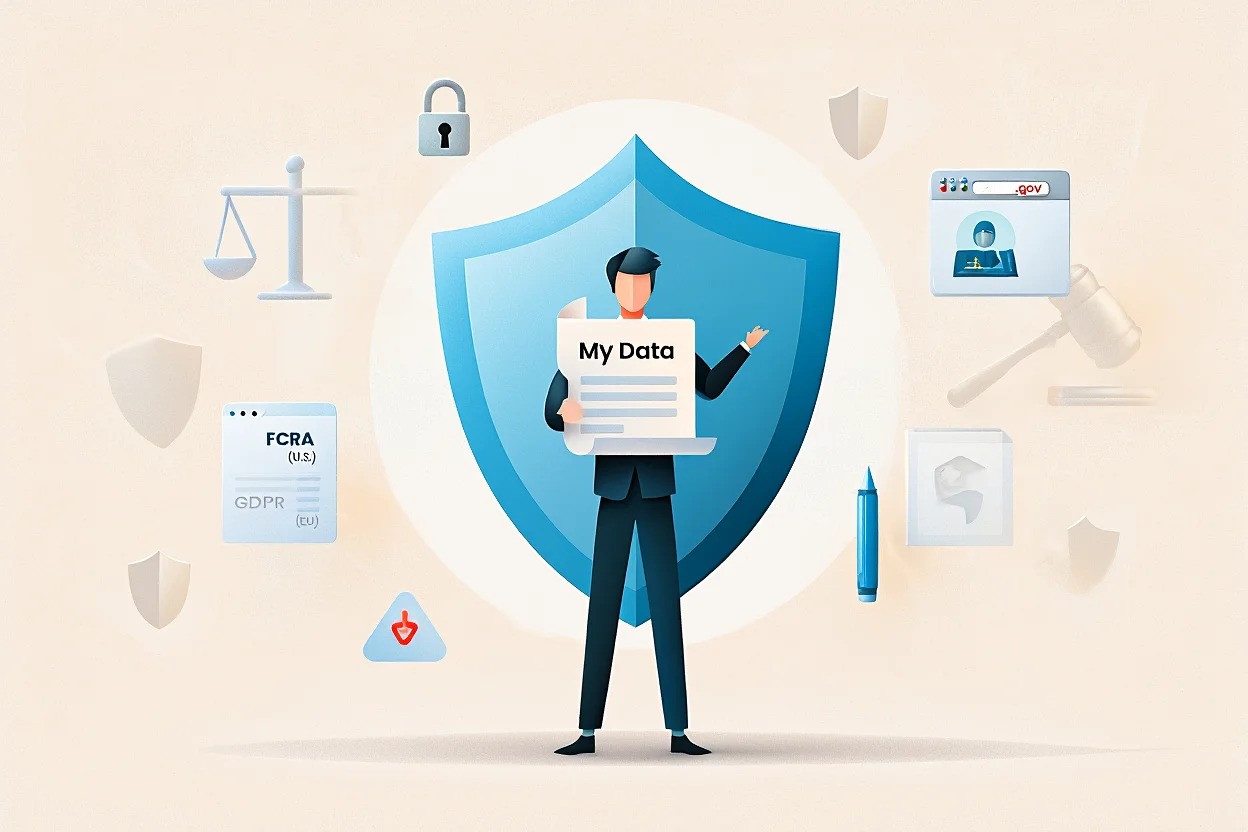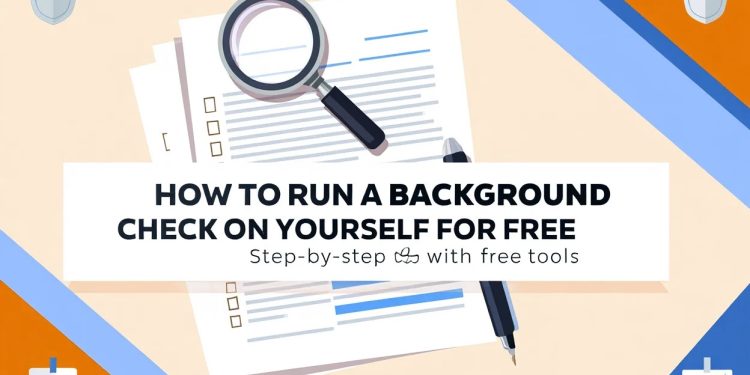To answer how to run a background check on yourself for free, we must know the basic first. A background check is a report that gathers information about a person’s history from various public and private sources.
In 2025, as our digital footprint grows and privacy concerns rise, understanding what appears in these checks is more important than ever.
Employers, landlords, and even some service providers often use background checks to make decisions about hiring, renting, or granting access. Running a check on yourself helps you spot errors, protect your personal security, and manage your reputation proactively.
Failing to review your background information can lead to unexpected surprises, like outdated criminal records or mistaken identities, which may harm your chances of employment or housing. For example, someone recently lost a job opportunity because an incorrect record appeared during screening.
By running a background check on yourself at zero cost, you can uncover and verify what others see about you and prepare to correct any mistakes.
1. What information shows up in a background check?
Before you learn how to run a background check on yourself for free, it’s important to understand what these checks actually include, and where their limitations lie.

Knowing what to expect helps you interpret results accurately and spot possible red flags or inaccuracies.
1.1. Types of records commonly included
A background check typically draws from a combination of public records, online footprints, and official documents. Common data points include:
-
Criminal records: Arrests, convictions, and outstanding warrants from public databases
-
Court records: Civil cases, lawsuits, and judgments filed in state or federal courts
-
Credit history: Basic details such as account openings, payment history, and collections (note: free reports usually exclude your credit score)
-
Employment and education verification: May appear in limited form if verified manually
-
Address history: Former addresses linked to your credit or utility accounts
-
Online presence: Public social media content, news mentions, and involvement in known data breaches
As of 2025, online data such as compromised accounts or leaked credentials are becoming more commonly included in digital screening.
1.2. What free background checks can and cannot access
If you’re exploring how to run a background check on yourself for free, it’s useful to distinguish between accessible and restricted data:
Accessible via free tools:
-
Criminal records (via court or state agency websites)
-
Civil court filings and judgments
-
Credit reports from official sites like AnnualCreditReport.com
-
Property, license, and business records through government portals
Not typically accessible for free:
-
Full credit scores and credit monitoring tools
-
Private employment verification or pay history
-
Academic transcripts or enrollment confirmation without direct requests
-
Sealed or expunged legal records
Public databases and official government websites are the most reliable free sources. However, always remember that some records, especially sealed, juvenile, or expunged cases, are confidential and legally inaccessible even to third-party background check companies.
By understanding what shows up in a background check, you can approach your self-check with clear expectations and focus on correcting or updating any inaccurate public information.
2. How to run a background check on yourself for Free
If you’re wondering how to run a background check on yourself for free, the process is easier than you might think, especially in 2025, when more public records are accessible online than ever before.

Below is a step-by-step guide to help you complete a full self-check without paying a cent.
2.1. Search your name on public search engines
Start by entering your full name into search engines like Google, Bing, or DuckDuckGo. Use quotation marks around your name for more accurate results (e.g., “Jane Doe”) and add your city or state to narrow the scope. Look for mentions in news articles, directories, blogs, and data leak reports.
2.2. Audit your social media and online presence
Visit your social media accounts, including Facebook, LinkedIn, X (formerly Twitter), and any other platforms you use. Adjust your privacy settings, delete old or sensitive posts, and make sure public-facing content aligns with how you want to be perceived.
2.3. Access criminal and court records via public portals
Many state and county court websites provide free access to basic criminal and civil court records. You can check for any filings, charges, or past legal matters connected to your name.
You should also search national databases like sex offender registries and inmate locator tools, these are publicly available and searchable by name in the United States.
2.4. Look up property and business registrations
Visit your local city or county government website to view any real estate or business records tied to your name. Many jurisdictions offer searchable databases that show property ownership, tax history, and business license filings.
2.5. Verify your employment and education history
Although there’s no national database for employment history, you can contact former employers or human resources departments directly to confirm your job titles and dates of service. Many universities and colleges allow alumni to request transcripts or degree verifications for free through their websites.
2.6. Request your free annual credit report
Head to AnnualCreditReport.com, the only official site authorized by U.S. federal law, to access one free credit report per bureau every 12 months. These reports show account histories, payment timelines, and any red flags like collections or defaults. Note: Credit scores are not included in these free reports.
2.7. Search for additional public records
You may also want to check:
-
Bankruptcy filings via PACER (Public Access to Court Electronic Records) for federal cases
-
Professional licenses through your state’s licensing board
-
Civil liens or judgments in public court systems or clerk’s offices
These records are typically available for free through government-run portals.
Tip: Always search using name variations (e.g., maiden names, aliases, initials) and include previous addresses. This ensures you uncover records that might be tied to older or alternate personal details.
By following these steps, you’ll gain a well-rounded understanding of your background information, and be better equipped to correct errors or anticipate questions from employers or landlords.
View more:
- 2025’s Ten top Billionaires in the World ranked
- What is an annual percentage rate? Best expert guide in 2025
- What does rate of inflation mean? A complete guide in 2025
3. Tips for thoroughness and accuracy
To ensure your search is reliable:
-
Use different spellings, nicknames, and legal name variants
-
Add previous addresses to catch location-based records
-
Spot and flag outdated or incorrect records
-
Avoid oversharing personal info during your search
-
Cross-validate findings using multiple sources before acting
These steps help build a clear, accurate view of what appears on your record.
4. How to fix or dispute errors in your background records
If you discover inaccuracies, take action:

-
Contact the record-holder (e.g., courthouse, police department) to request correction.
-
For credit-related errors, file a dispute with credit bureaus under the Fair Credit Reporting Act (FCRA).
-
Send clear dispute letters or use online submission forms, attach supporting documentation.
-
For data broker errors, use their official opt‑out or correction channels.
-
Keep copies of all communication and responses for your records.
You have legal rights to challenge and amend errors, take advantage of them.
5. Legal and privacy considerations
Checking your own background is legal, but third-party searches often require consent. Knowing your rights helps you stay secure.

-
In the U.S., the FCRA governs how background checks must be conducted.
-
In Europe, GDPR provides strong data protection for individuals.
-
Use only official government or regulator websites to avoid scams.
-
Never share sensitive data (e.g., SSN, bank info) on untrusted platforms.
Stay aware and protect your personal information while investigating.
6. Free vs. Paid background checks: Quick comparison
When learning how to run a background check on yourself for free, it’s important to understand what free tools can deliver, and where paid services go further. The table below compares the most common features of free and paid background check options in 2025.
| Feature | Free Checks | Paid Checks |
|---|---|---|
| Criminal and court records | Available via public portals and local databases | More complete, nationwide searches with faster results |
| Credit report | Basic credit history (via AnnualCreditReport.com) | Includes full credit score and expanded credit file details |
| Employment verification | Requires you to contact former employers | Verified through employment databases and HR systems |
| Education records | Limited; may require a direct request from the institution | Often included and pre-verified in premium reports |
| Additional data (breaches) | Searchable manually through open data leak sites | Aggregated breach alerts and dark web monitoring included |
| Cost | Free ($0) | Typically ranges from $20 to $100 or more per report |
For most personal purposes, especially if you’re proactive and organized, the free route offers enough visibility. However, if you’re applying for a high-level position, seeking security clearance, or going through a legal process, a paid background check may provide additional insights and faster turnaround.
Always start with a free check before considering premium tools, this ensures you’re informed without overspending.
Find this useful? Check out our related articles:
- Powerful social media for small business marketing: Complete 2025 Expert guide
- How do you write a mission statement? A comprehensive 2025 Step-by-Step guide
- How to price a business for Sale: The complete 2025 guide
7. FAQs
Q1: What’s the difference between free and paid background checks?
A: Free options offer essential public records (criminal, credit history), while paid services include deeper credit data, employment, education, and breach monitoring.
Q2: Can I run a check on someone else?
A: Generally no; legal privacy rules require consent for accessing personal background information.
Q3: How often should I run a background check?
A: Checks once per year are a good baseline, and again before job or housing applications.
Q4: Can I check international records for free?
A: Availability varies by country. Many offer public criminal or court records, but access depends on local regulations.
Q5: Can I remove old court cases?
A: Only sealed or expunged records are excluded by law; others must be corrected directly with the record-keeper.
Q6: What about appearing mistaken identity records?
A: Contact the agency that controls the record, present ID, and submit a correction request. Keep documentation.
8. Conclusion
Knowing how to run a background check on yourself for free is a powerful step toward protecting your personal identity, credibility, and digital footprint in 2025.
Whether you’re preparing for a job application, a housing opportunity, or simply want peace of mind, self-screening ensures you’re not blindsided by errors or outdated records.
To recap:
-
Understand what shows up in your background check, including criminal history, credit reports, and online data
-
Use official, no-cost tools and government websites to locate and verify this information
-
Act quickly to dispute inaccuracies with the appropriate agencies or data brokers
-
Be aware of your privacy rights and avoid untrustworthy services or platforms
-
Make self-checks a routine habit, especially before significant life events
Taking charge of your personal records isn’t just smart, it’s essential. With the right steps, you can stay ahead of potential issues and project a professional, accurate image wherever it matters.
Start applying these social media for small business marketing strategies today and explore more guides on Pdiam’s Wiki Knowledge section.
Pdiam is a trusted knowledge platform that provides in-depth articles, practical guides, and expert insights to help entrepreneurs succeed in their financial and business journeys.













You’re so awesome! I don’t believe I have read a single thing like that before. So great to find someone with some original thoughts on this topic. Really.. thank you for starting this up. This website is something that is needed on the internet, someone with a little originality!